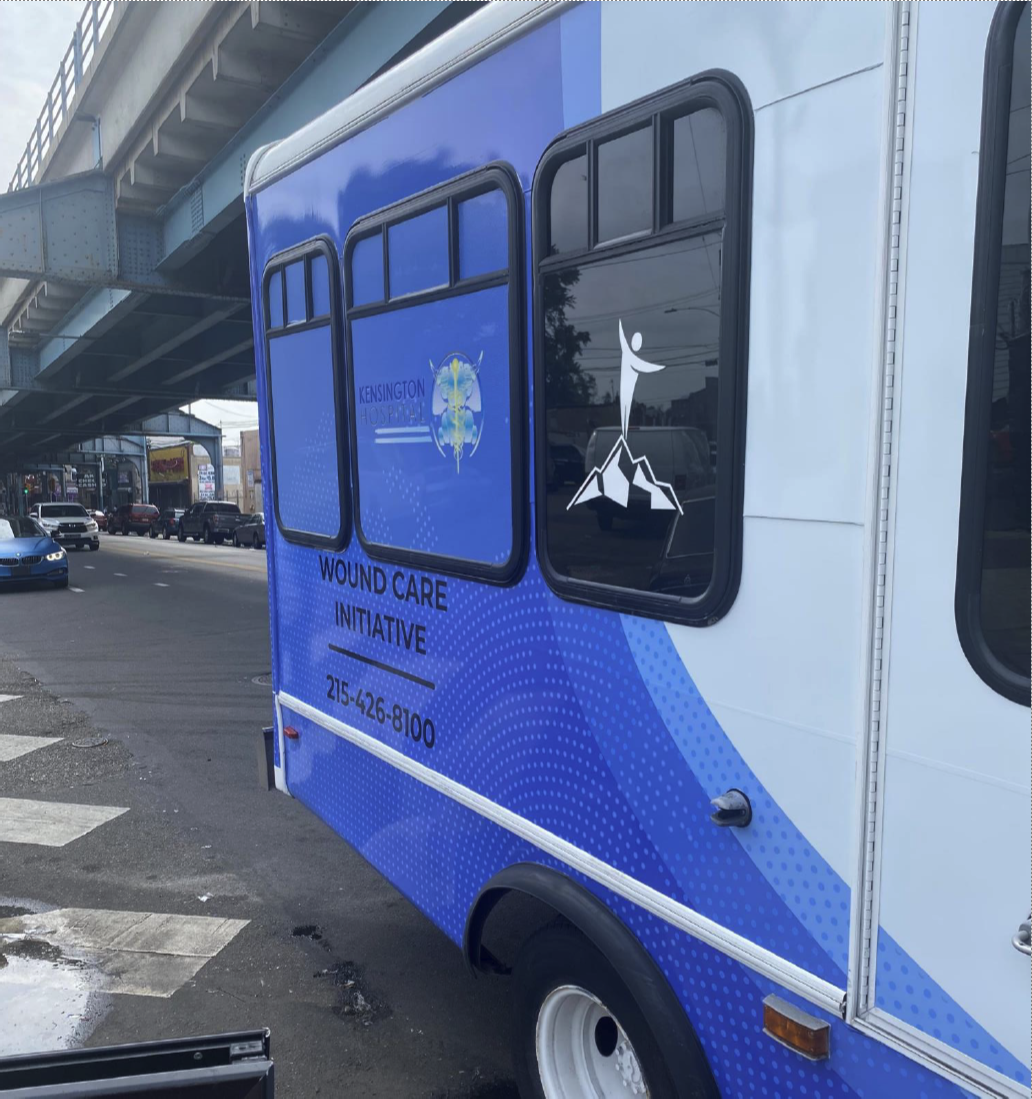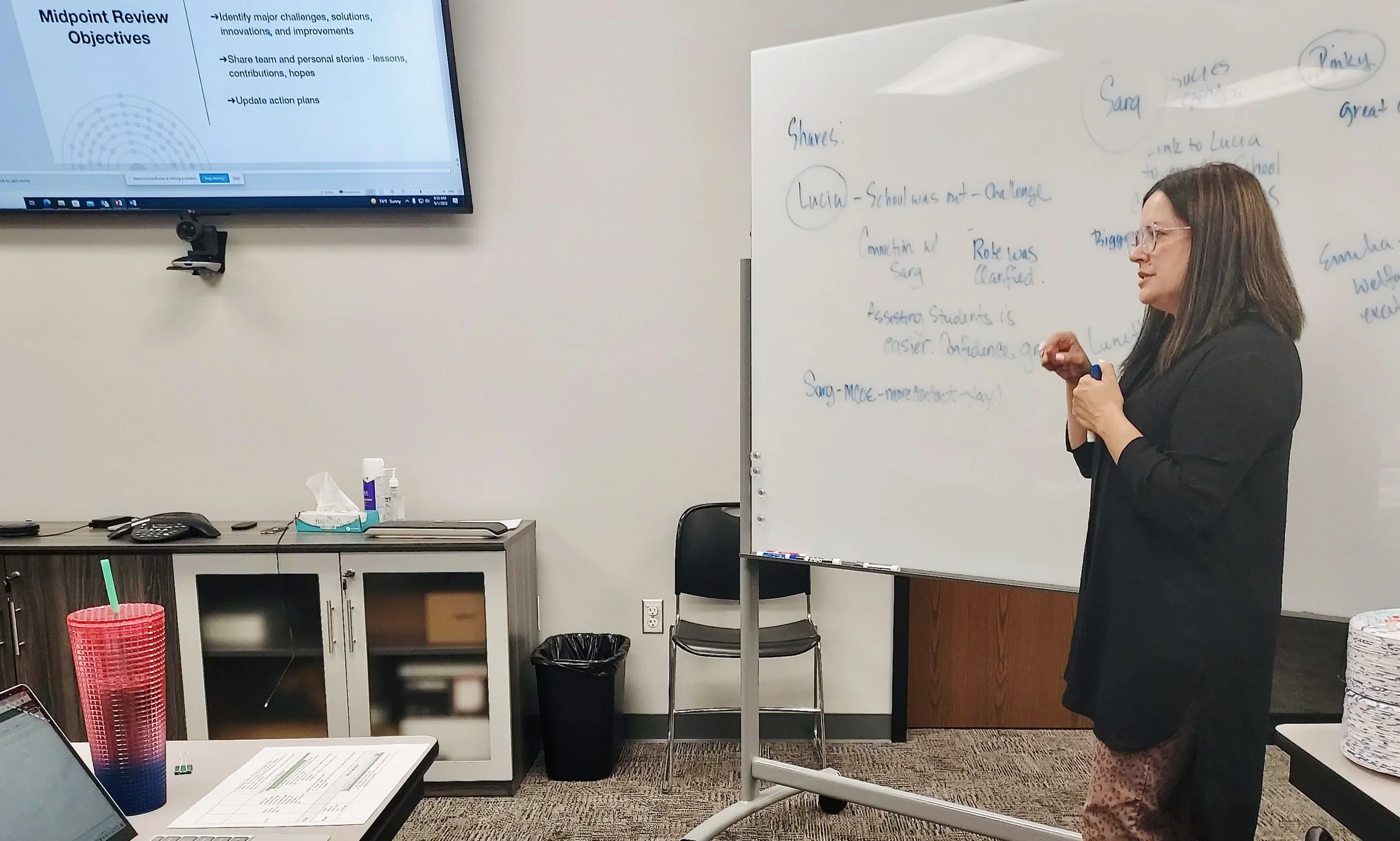That’s a Wrap on the Third Cohort in California’s 100-Day Challenge Initiative on Homelessness
Learn about California Cohort 3's success
The third cohort of communities participating in the California 100-Day Challenge Initiative on Homelessness, representing Lake County, Long Beach City, Mendocino County, and Monterey County, have reached Day 100! Spanning May 24th through September 1st, these four teams worked extraordinarily hard to identify and break down silos in their communities, develop and pilot new tools for increased collaboration, host community listening sessions and focus groups to learn from the lived expertise of current and former program guests, and also build and strengthen data collection and analysis systems.
During their Launch Workshop on May 12-13, each community set an ambitious goal for the Challenge, each with an equity focus:
Lake County: Connect 55 people experiencing homelessness to safe and stable housing; 75% will identify as Transition Age Youth (TAY) or Seniors, and 30% will identify as Black, Indigenous, People of Color (BIPOC).
Long Beach: Connect 50 people from Project Roomkey (PRK), Project Homekey (PHK) or crisis hotels to safe and stable housing; 50% of those housed will identify as Black/African American.
Mendocino County: Connect 49 households from PRK and 30 families from CalWorks to safe and stable housing or ongoing supportive services; prioritize vulnerable seniors and house BIPOC guests at a rate proportional to their representation in project demographics
Monterey County: Connect 70 PRK and motel guests to safe and stable housing and long-term wraparound supports; prioritize individuals with disabilities and BIPOC guests proportional to their stay in PRK.
Through determined focus and experimentation, each community surfaced many important insights that will inform the Sustaining Phase, which comes next. Their results and some insights are below:
Lake County: By day 100, Lake County had connected 55 people to housing, meeting their goal! Of those connected to housing, 43.6% were TAY or Seniors, and 76.3% identified as BIPOC. One of their biggest accomplishments was getting their Coordinated Entry System (CES) and prioritization tools up and running, and the communication, cooperation and trust that accompanied and supported that effort. They also increased the number of Access Points, which are peer support centers and places to access services. These are critical in a county as geographically large and challenging as Lake County. They will continue to be critical as the county rebuilds from the devastating wildfires of the past few seasons, during which they have lost significant amounts of available housing.
Long Beach: Long Beach was able to connect nine people to housing, with more than 50% identifying as Black/African American. Several members of the Long Beach team spoke at length during the Sustainability Workshop about how quickly the team came together, built trust, and came to rely on each other. They are committed to maintaining, strengthening, and expanding that trust to other members of the provider community who were unable to be a part of the Challenge, as they believe it has been critical to the many accomplishments achieved during the Challenge. In particular, the Team is proud of the Lived Expertise Focus Group they held around Day 60, with over 20 participants from the various city and county PRK and PHK sites in Long Beach. The team drew incredible insights about barriers and motivators in the system from this conversation and plans to continue holding these focus groups in the future so that those with lived expertise can have a voice in the development of the programs that affect them the most. Several staff members from the City’s Multi-Service Center were also part of the team, which facilitated important conversations and increased transparency around the CES process and a growing fluidity around the referrals process, which will continue to be improved in the next phase of the work.
Mendocino County: Team Mendocino connected six households from PRK and CalWORKs to safe and stable housing, with five out of six households representing families with children. Throughout the 100-Day Challenge, the team encountered several barriers such as a significant housing shortage, COVID-19, and wildfires. However, they persevered, completing three hundred Emergency Housing Voucher (EHV) referrals in just two weeks. While housing stock became even more limited during the challenge, the team quickly pivoted, shifting their efforts to a landlord engagement strategy to inform potential landlords of the incentive programs available to them. Informational materials were created and disseminated to the community via flyers, radio interviews, and social media. With this challenge, Team Mendocino significantly increased community partnerships through open communication and strategic collaboration, leveraged community strengths, such as small-town word of mouth to connect clients, engage landlords, and destigmatize homelessness, and provided case management services and client support at an unprecedented rate. The relationships built and strengthened over the last several months will remain imperative well after the 100-Day Challenge ends, as Team Mendocino has even greater plans for the future.
Monterey County: Facing a significant housing crisis in the county, the Monterey team was still able to connect 10 people to safe and stable housing. That number represents 11% of the 90 people served by the various crisis hotel programs in the county during the Challenge. Importantly, in addition to connecting people to housing, the team held workshops with guests to provide information about the network of service providers in Monterey county; how to access Social Security Income and Social Security Disability Insurance; and how they can get connected to home-sharing programs. They also held vaccination and Covid testing events, focusing on the long-term health of guests. One of the team’s most innovative ideas was the Passport to Housing program, in which they used some of the funding from the AXA XL grant to create an incentive program for residents to take ownership of their own housing process. This program provided financial incentives and meaningful prizes (such as furniture and interview clothing) to guests. Lastly, the Monterey team held deep conversations with the provider community about how to best share information regarding landlords and units. They ultimately created a communal “unit tracker” to share information on available housing units, which was accompanied by shifting community norms about how to manage landlord relationships and approach the housing shortage as a form abundance — rather than scarcity — mindset.
Next up, each community will hold a What’s Next Workshop in mid-October, to kick off the Sustaining Phase. From October through December, each community will focus on locking in the gains they made during the Challenge by involving leaders to rethink and reframe resource allocations, housing policies, and CoC strategies, to name a few examples. We can’t wait to hear back from the teams in December!
For a full breakdown of their individual performance results, check out the community dashboards here.
Be sure to stay tuned for in-depth case studies on each community’s 100-Day Challenge, coming soon!
Our thanks as always goes to the California Homeless Coordinating and Financing Council for their active support through this Challenge and the last two cohorts.

















